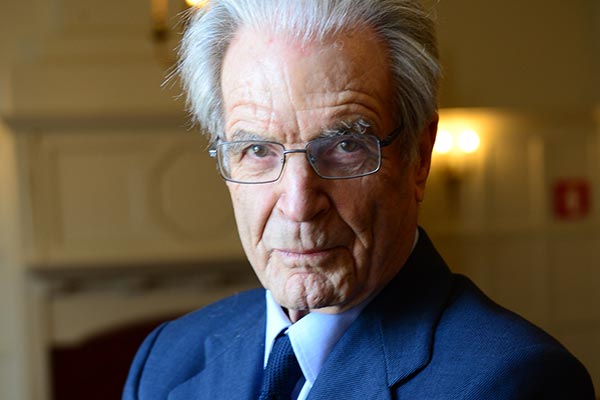
Antonio Garrigues
Honorary President of Garrigues
“We have shut down cultural dialogue, we have shut down business dialogue to a certain extent, and now we are shutting down all other kinds of dialogue, little by little”
How do you regard the public’s disenchantment with politics?
The disenchantment of the general public with the political establishment is a worldwide phenomenon and not just something particular to Spain. We are living in an especially difficult time as a consequence of a crisis that is never ending, and this eventually affects the credibility of the political class because the number of people who feel they have been hurt is constantly increasing. Therefore, we have to convince politicians that they must do something—and that something can be done—to recover their credibility. This society has demonstrated a resilience in the face of the crisis like no other society in the world, given that the crisis in Spain has been tremendously deep.
Is far-reaching constitutional reform necessary?
The Constitution must be reformed in order to deal with some very significant problems, including our territorial model. No one should doubt this fact or let it frighten them. Now what we need is a minimum level of consensus. It would be brilliant if this could simultaneously encourage a culture of dialogue, which is currently at an all-time low. We might be able to reach a consensus on education, health, justice and a whole host of other issues, and the general public would be really happy about that.
Does the change of king and the style of the monarchy signpost the path to follow?
The fact that the change of king has generated a very positive assessment of the institution of the monarchy in a very short space of time demonstrates that we are living in an era where institutions must undergo renewal, along with the people who direct those institutions. Above all, this is due to the fact who we are living in a digital society, and while older generations may consider themselves to be more or less wise, we do not belong to this age. I think it is a positive thing for Spain to have a young person leading the opposition, a young monarch. A renewal of the political class—even the business class—is a good thing.
What has happened to politics?
Between the unemployment, corruption, the indifference of the PSOE, the indifference of the PP, and the general immobility of the government, people have become sick of the traditional parties and this has allowed new parties to emerge. Where a space becomes vacant, something will always come along to fill it. If the traditional parties start to do things a bit better, and connect better with the general public, they will be able to partially recover that space.
How would you approach the Catalan question?
The thing that has exacerbated the Catalan issue is the political establishment. I think it’s fantastic for a community to defend its identity, its language, its culture, and I very much admire the Catalan culture, language, and search for an identity. Democracy doesn’t mean everyone being in agreement; it means agreeing to disagree. Nevertheless, the problem right now isn’t that there is no political dialogue (although it’s true that there is none) but that there isn’t any other kind of dialogue either. We have shut down cultural dialogue, we have shut down business dialogue to a certain extent, and now we are shutting down all other forms of dialogues, little by little. It is unimaginable that Catalonia wants to live independently from Spain and on the margins of Europe. There must be formulas that can generate understanding, and that is why a constitutional reform would be the ideal medium for finding new common ground right now. We have to open up new paths.
